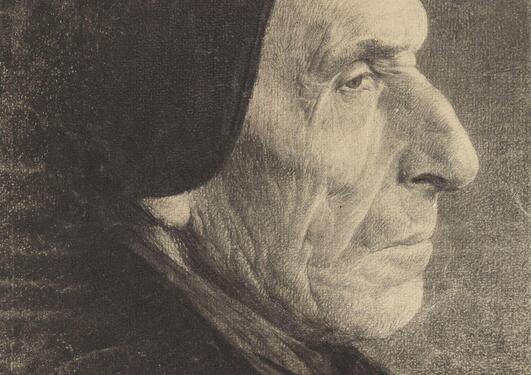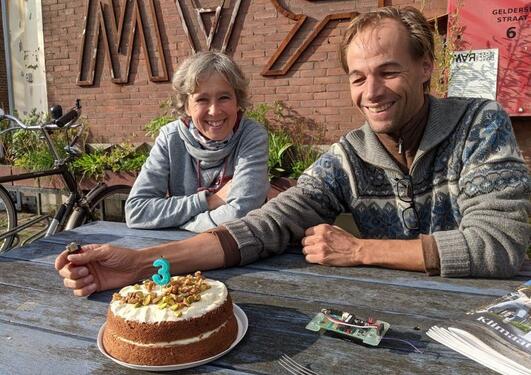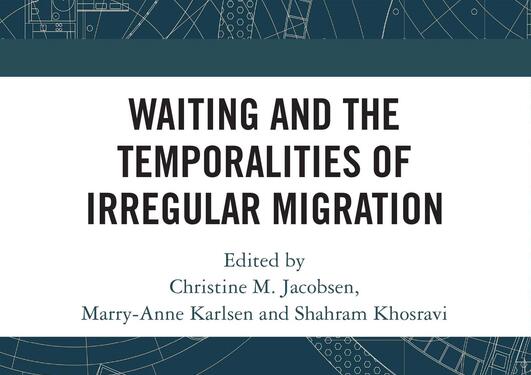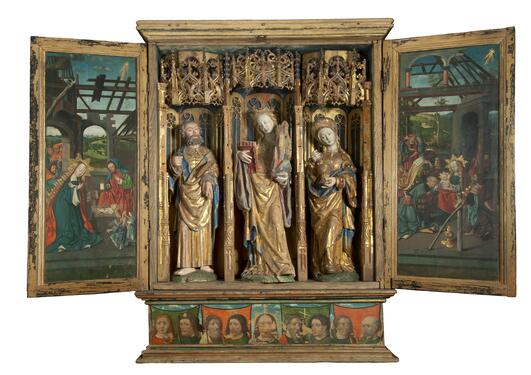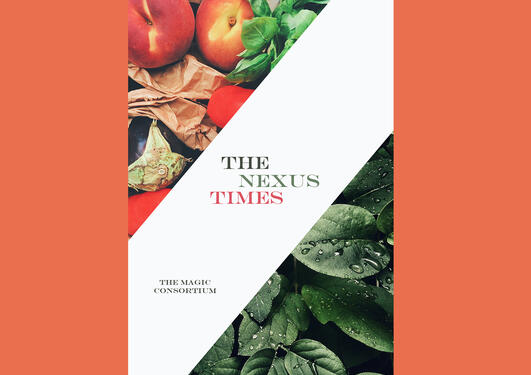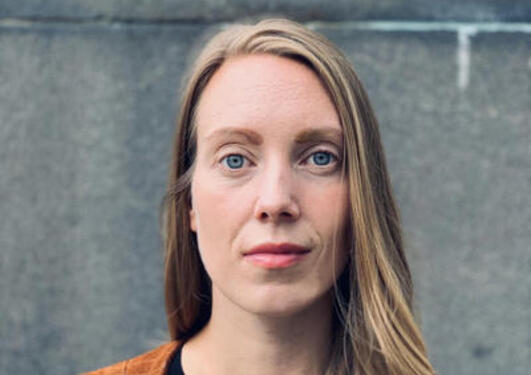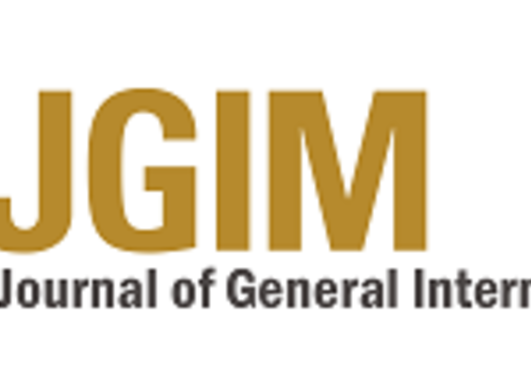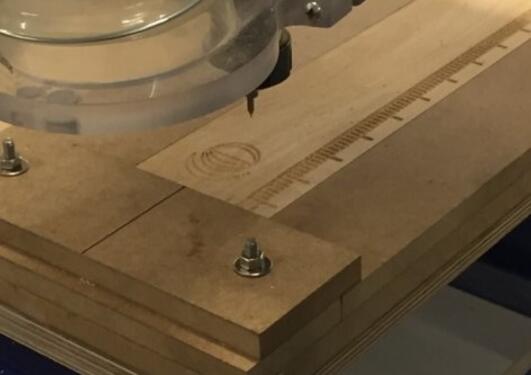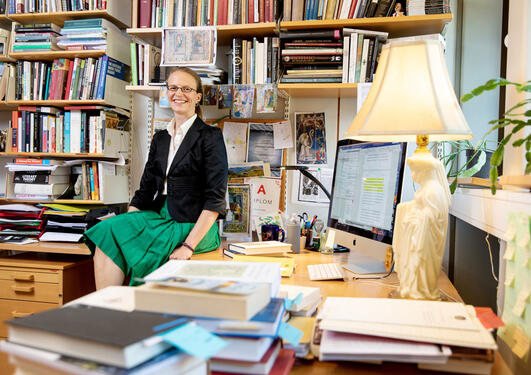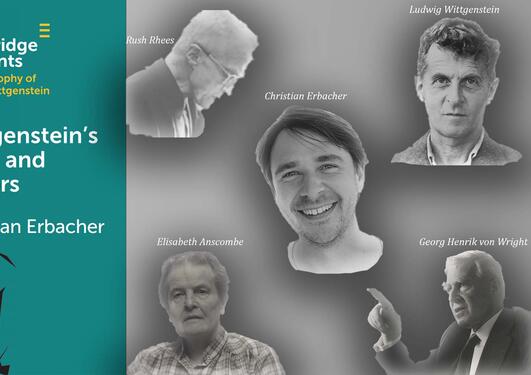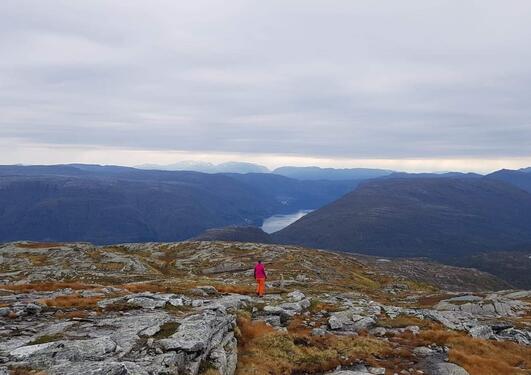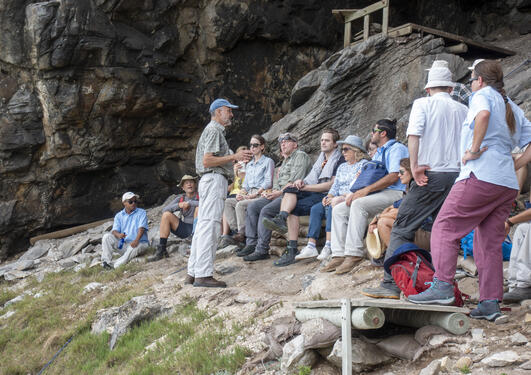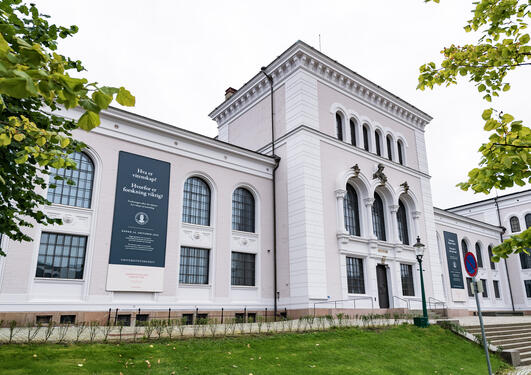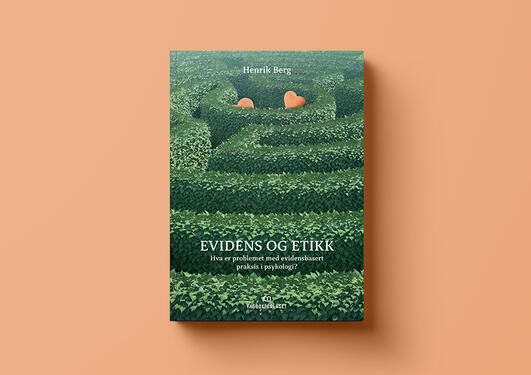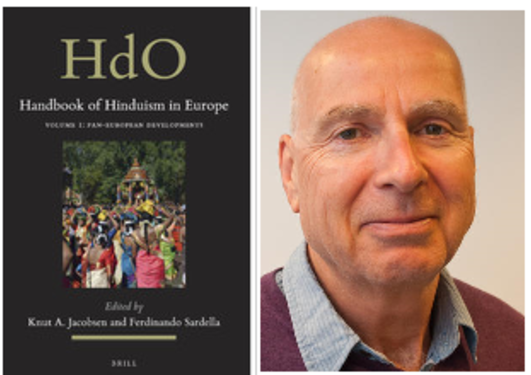News archive for Faculty of Humanities
Drawing on 16th- to 21st-century American, British, French, German, Polish, Norwegian and Russian literature and philosophy, this collection teases out culturally specific conceptions of old age as well as subjective constructions of late-life identity and selfhood.
The project Meet je Stad (Measure your City), which has links to two UiB research projects, has been named the 3rd most sustainable Dutch initiative.
UiB researchers Scott Bremer and Diana Wildschut have together with Werner Krauss co-edited a special issue about narratives in the journal Climate Risk Management.
Researchers from UiB’s WAIT project have published a new book about waiting as both a social phenomenon in migration and as an analytical perspective on migration processes.
The launch at the University Aula concluded with two large panels representing the diversity of scientific milieus tackling global challenges in Bergen. Together they will work to make Bergen the place of choice for students seeking knowledge and skills to help solve global challenges.
Northern European Reformations. Transnational Perspectives. Edited by James E. Kelly, Henning Laugerud, Salvador Ryan.
Researchers at UiB launch a new book in connection with the completion of the MAGIC project. The publication consists of the project members’ thought-provoking and radical ideas about sustainability.
"Establishing Rhetorical Agency by Framing Sustainable Lifestyles as Acts of Rebellion" (28.10.2020)
On the general meeting of the Institute for Foreign Languages on 21st October 2020, postdoctoral fellow Ida Andersen gave a presentation on her planned study associated to the CLIMLIFE project.
CNA has been applied in a study on factors influencing the implementation of a colorectal cancer screening improvement program in community health centers.
As part of our local communication and engagement work, we developed a creative exercise centered on the traditional Norwegian calendar stick, the primstav.
Laura Miles forteller om sin forskning, forskerhverdag og veien inn i forskningen.
When Wittgenstein died, he had commissioned his good friends and students Rush Rhees, Elisabeth Anscombe and Georg Henrik von Wright to publish his surviving manuscripts as they saw fit. In this book, Christian Erbacher gives us an insight into how this work ended in what we know today as the late Wittgenstein's philosophy.
Digital summer research school.
In March 2020 most of the world went into lockdown as a result of the COVID-19 pandemic. Challenging times lay ahead for everyone, including the research community.
The hominin line shares most of its genetic makeup and a great deal of its behavioral repertoire with its closest primate relatives. At some point in the past, however, it set off on a different evolutionary trajectory, culminating in cognitive skills that are impressive both in extent and in the speed at which they have evolved. One goal of SapienCE is to shed light on when this process began... Read more
Professor emeritus at the University of Bergen, Gunnar Skirbekk, is worried about a new proposal for financing higher education institutions in Norway.
Associate professor at the University of Bergen, Henrik Berg, criticizes evidence-based practice in psychology in a new book.
The two volumes "Handbook of Hinduism in Europe" is the first academic study of Hinduism in all the countries of Europe. Knut A. Jacobsen, professor at AHKR is the editor of the volumes.
Pages
- December 2025 (2)
- November 2025 (3)
- October 2025 (2)
- August 2025 (2)
- July 2025 (4)
- June 2025 (6)
- May 2025 (4)
- April 2025 (3)
- March 2025 (5)
- February 2025 (5)
- January 2025 (3)
- December 2024 (4)
- November 2024 (7)
- October 2024 (5)
- September 2024 (6)
- August 2024 (4)
- July 2024 (1)
- June 2024 (5)
- May 2024 (6)
- April 2024 (7)
- March 2024 (2)
- February 2024 (5)
- January 2024 (8)
- December 2023 (5)
- November 2023 (4)
- October 2023 (6)
- September 2023 (11)
- August 2023 (6)
- June 2023 (9)
- May 2023 (11)
- April 2023 (8)
- March 2023 (4)
- February 2023 (6)
- January 2023 (7)
- December 2022 (1)
- November 2022 (9)
- October 2022 (4)
- September 2022 (9)
- August 2022 (5)
- June 2022 (3)
- May 2022 (4)
- April 2022 (4)
- March 2022 (6)
- February 2022 (7)
- January 2022 (4)
- December 2021 (2)
- November 2021 (6)
- October 2021 (5)
- September 2021 (11)
- August 2021 (8)
- July 2021 (2)
- June 2021 (4)
- May 2021 (5)
- April 2021 (6)
- March 2021 (9)
- February 2021 (5)
- January 2021 (7)
- December 2020 (5)
- November 2020 (5)
- October 2020 (5)
- September 2020 (7)
- August 2020 (5)
- July 2020 (3)
- June 2020 (6)
- May 2020 (4)
- April 2020 (7)
- March 2020 (2)
- February 2020 (3)
- January 2020 (2)
- December 2019 (2)
- November 2019 (6)
- October 2019 (7)
- September 2019 (7)
- August 2019 (5)
- July 2019 (1)
- June 2019 (6)
- May 2019 (5)
- April 2019 (4)
- March 2019 (6)
- February 2019 (4)
- January 2019 (2)
- December 2018 (2)
- November 2018 (4)
- October 2018 (1)
- September 2018 (4)
- June 2018 (5)
- May 2018 (2)
- April 2018 (3)
- March 2018 (1)
- February 2018 (2)
- January 2018 (7)
- December 2017 (1)
- November 2017 (1)
- October 2017 (2)
- September 2017 (5)
- August 2017 (1)
- July 2017 (1)
- June 2017 (6)
- May 2017 (2)
- April 2017 (3)
- March 2017 (6)
- February 2017 (3)
- January 2017 (1)
- December 2016 (1)
- November 2016 (2)
- October 2016 (2)
- August 2016 (2)
- June 2016 (1)
- May 2016 (2)
- March 2016 (1)
- January 2016 (1)
- October 2015 (1)
- August 2015 (2)
- July 2015 (1)
- June 2015 (3)
- May 2015 (3)
- April 2015 (1)
- February 2015 (1)
- January 2015 (1)
- November 2014 (2)
- October 2014 (2)
- September 2014 (3)
- August 2014 (1)
- May 2014 (2)
- April 2014 (1)
- March 2014 (5)
- February 2014 (1)
- November 2013 (5)
- August 2013 (1)
- July 2013 (1)
- June 2013 (2)
- May 2013 (1)
